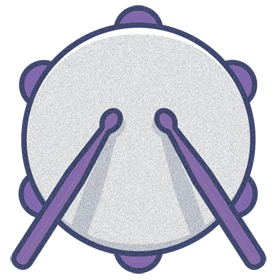Discover your intellectual strengths
The realm of wisdom and insight traverses beyond mere knowledge. It's a delicate interplay of experience, understanding, and discernment, shaping the moral compass of individuals. These quotations shed light on the essence of true wisdom, capturing the reflections of thinkers who have ventured deep into the caverns of human consciousness. From discerning right from wrong to understanding the intricate web of human emotions and intentions, these insights provide a beacon for those seeking guidance in an ever-complex world. Engage with these thoughts and reflect on your own journey towards achieving a deeper understanding of life and its myriad challenges.

"The only true wisdom is in knowing you know nothing." - Socrates
Socrates, an ancient Athenian philosopher, was renowned for his dialectic method of questioning, probing the beliefs and knowledge of his contemporaries. This quotation reflects his assertion that the wisest individuals recognize the limits of their own knowledge. This understanding that one knows nothing serves as a point of humility, and a catalyst for genuine philosophical inquiry.
Socratic intelligence goes beyond mere accumulation of facts. It emphasizes the importance of recognizing one's own limitations, which in turn encourages an open-minded approach to learning and understanding. True intelligence, according to this view, is grounded in humility and the perpetual quest for knowledge.
Critical thinking, introspection, and open-mindedness are highlighted in this quotation. The recognition of one's limitations in knowledge encourages an active pursuit of understanding and a willingness to ask questions.
AI, especially deep learning algorithms, operates by processing vast amounts of data and generating models based on patterns. However, they lack the introspection to recognize their own limitations. Socratic wisdom serves as a reminder that true intelligence is not just about knowing but also understanding one's limitations, which is a challenge for current AI models.

"Wisdom is not a product of schooling but of the lifelong attempt to acquire it." - Albert Einstein
Albert Einstein, a theoretical physicist known for his theory of relativity, often shared insights on education and the nature of intelligence. This quotation suggests that formal education is not the sole determinant of wisdom. Instead, a persistent pursuit of understanding throughout one's life is what leads to genuine wisdom.
Einstein differentiates between mere learning (often associated with formal schooling) and the deeper pursuit of wisdom. This points to the idea that intelligence is not static or confined to academic achievements but is a dynamic process of continuous growth and exploration.
Curiosity, perseverance, and lifelong learning stand out here. The emphasis is on the continuous pursuit of knowledge and understanding, which requires an innate drive and resilience.
Modern AI systems are efficient learners, especially in specific tasks. Yet, they lack the intrinsic motivation or the 'curiosity' that drives humans to seek knowledge continuously. AI's learning is dictated by the data it's fed and the objectives it's programmed for. It doesn't possess the intrinsic desire to acquire wisdom for its own sake.

"Knowing others is intelligence; knowing yourself is true wisdom. Mastering others is strength; mastering yourself is true power." - Lao Tzu
Lao Tzu, an ancient Chinese philosopher and the traditional founder of Taoism, emphasized harmony, balance, and understanding oneself. This quotation underscores the distinction between external knowledge (of others) and introspective knowledge (of oneself).
Lao Tzu presents a dichotomy: external vs. internal knowledge and power over others vs. self-mastery. While intelligence is associated with understanding the external world, true wisdom lies in understanding oneself. This perspective suggests that intelligence is multifaceted, encompassing both outward and inward insights.
Self-awareness, introspection, and self-regulation are pivotal here. While understanding and predicting the behaviors of others can be seen as a cognitive skill, mastering one's impulses, desires, and emotions represents a deeper level of cognitive and emotional maturity.
AI can be designed to understand, predict, and even manipulate human behaviors (external knowledge). However, AI does not possess self-awareness or the capacity for introspection in the human sense. This distinction between knowledge of the external world and self-awareness is crucial when considering the limitations and potentials of AI in replicating human intelligence.


